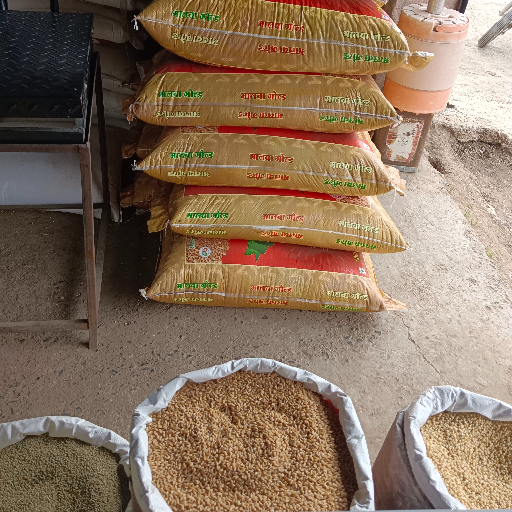In the heart of rural Maharashtra, where the sun dips low over sprawling fields, lives Kavita, a resilient farmer navigating the challenges of agriculture. Her story, like that of many Indian farmers, is one of perseverance and hope. For years, Kavita struggled with unpredictable weather patterns and soil degradation, which threatened her family's livelihood. However, a humble grain known as Bajari (pearl millet) offered a solution that would transform her life and farm.
Kavita's journey is a testament to how understanding one's land and choosing the right crop can make a significant difference. Bajari, a versatile and hardy grain, thrives in arid and semi-arid regions, making it an ideal choice for farmers like Kavita. Known for its nutritional benefits and resilience to harsh climates, Bajari became her lifeline.
The Major Challenge Soil Degradation and Unpredictable Weather
For years, Kavita battled the elements. Her farm, passed down through generations, was showing signs of fatigue. The soil was losing its nutrients, and erratic rainfall patterns made it difficult to predict crop yields. It was an emotional and practical challenge, not just for Kavita, but for many farmers in her village. The anxiety of a poor harvest loomed over her like a dark cloud, threatening her children's education and the family's future.
But Kavita is not one to give up easily. She attended a local agricultural workshop where she learned about Bajari. The experts emphasized its drought-resistance and ability to thrive in nutrient-poor soils. Intrigued by its potential, Kavita decided to give it a try.
The Transformation Bajari in Action
The decision to plant Bajari marked a turning point for Kavita. As she sowed the seeds, she felt a renewed sense of hope. The grain's deep-rooting system began to improve the soil structure, preventing erosion and aiding water retention. This practical benefit was just the beginning. Bajari's adaptability meant that even when the rains were sparse, Kavita's fields still produced a healthy yield.
The change was remarkable. Kavita's farm began to flourish. She could not only provide for her family but also sell surplus produce at the local market. Her children noticed the change too. Their mother was less stressed, the household more stable. Bajari had provided Kavita with a sense of security, both emotionally and financially.
A Community Inspired
Kavita's success did not go unnoticed. Her neighbors, initially skeptical, began to inquire about her newfound prosperity. Kavita, always willing to help, shared her experience and encouraged others to consider Bajari. She organized informal meet-ups, sharing seeds and knowledge. Slowly, her village began to see a shift.
Farmers who once faced similar challenges saw improvements in their yields and soil health. Bajari had sparked a quiet revolution, empowering a community to take control of their futures.
A Broader Impact
Kavita's story is a microcosm of the larger agricultural landscape in India. With climate change posing new challenges, crops like Bajari offer a viable solution for sustainable farming. They not only address practical problems like soil degradation and water scarcity but also provide emotional relief to farmers burdened by uncertainty.
For those seeking to make a meaningful change in their agricultural practices, Bajari represents more than just a crop. It is a symbol of resilience and adaptability, capable of transforming lives and communities.
Kavita's journey with Bajari is a tale of hope and transformation. Her story serves as a reminder of the power of the right crop choice in overcoming agricultural challenges. As more farmers embrace Bajari, the potential for positive change grows, promising a brighter, more sustainable future for rural India.
In the fields of Maharashtra, where challenges once seemed insurmountable, Bajari has sown the seeds of resilience and prosperity. Farmers like Kavita now stand as examples of what can be achieved with a little hope and the right choice of crop.
Visit Vyaparify Site:
https://id.vyaparify.com/samarth-traders-1Location:
https://maps.app.goo.gl/daKgSf9i4qQeQtgD6 
